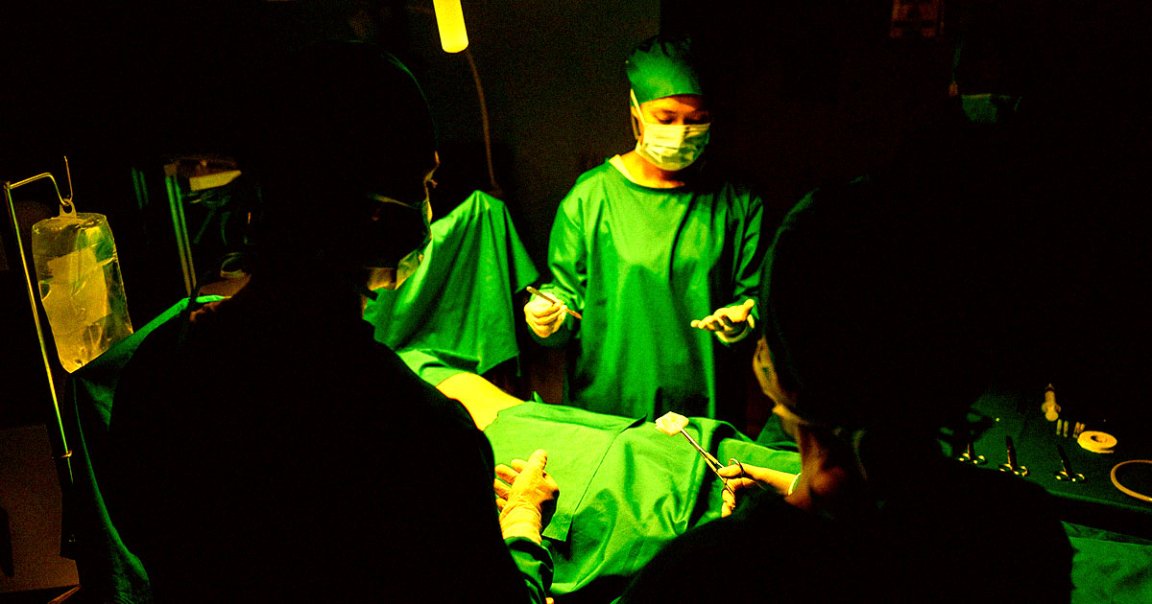
A man in Kentucky who had been declared brain dead following an overdose started showed signs of life once again — while, dramatically, doctors had already started harvesting his organs.
As Lexington-based news station LEX 18 reports, TJ Hoover’s sister, Donna Rhorer, told a House subcommittee on organ donation safety lapses last week that her brother’s eyes were open during his honor walk in October 2021, a ceremonial event put on by hospitals to honor organ donation patients.
“Almost immediately as soon as his honor walk started, his eyes were opened, and they were tracking, looking around at the people that were there,” Rhorer told the subcommittee.
Around 45 minutes after TJ was taken to the operating room, doctors informed Rhorer that the procedure had been stopped.
“He was moving a lot, just thrashing, not settled,” said surgical preservationist Natasha Miller, who resigned from her post following TJ’s case, during the hearing.
Hoover, who survived the ordeal and is living with his sister in the aftermath, is now dealing with PTSD, Rhorer said.
The incident suggests, advocates say, that medical organizations could be jumping the gun to harvest organs from people who — with all apologies to Monty Python — aren’t quite dead yet.
One particularly controversial practice is “donation after circulatory death,” which allows donations to be made from people who aren’t brain dead, but whose family has decided to withdraw life support, as CNN reports.
The US Department of Health and Human Services announced last week that it would kick off an initiative to reform the country’s organ donation system.
“Our findings show that hospitals allowed the organ procurement process to begin when patients showed signs of life, and this is horrifying,” said HHS secretary Robert Kennedy Jr. in a statement. “The organ procurement organizations that coordinate access to transplants will be held accountable.”
“The entire system must be fixed to ensure that every potential donor’s life is treated with the sanctity it deserves,” he added.
Hoover’s case, in particular, stands out.
“I was really surprised that that morning he had been taken to the cardiac cath lab, he was paralyzed and sedated, and moved on with the OR,” said surgical preservation coordinator Nyckoletta Martin, during the hearing, as quoted by LEX 18. “The hospital staff said they were incredibly alarmed, calling it euthanasia.”
“The cardiologist said he didn’t know why TJ was given a poor prognosis, he said it didn’t look like it was brain dead,” she added.
Barry Massa, the CEO of Human organ procurement organization Network for Hope, who was partially the subject of last week’s House subcommittee hearing, has since told LEX 18 in a statement that “we hold ourselves to the highest standards and are committed to ongoing improvement as we carry out the sacred responsibility of honoring each individual’s decision to become an organ donor.”
“We remain focused on our mission and dedicated to earning and maintaining the public’s trust in the donation and transplant system,” Massa added.
To Rhorer, her brother’s case should be a call to action.
“TJ was able to fight for his life… and he’s still here,” she told the hearing. “And there’s others that are still here. But there’s a lot that are not.”
More on organ donation: The Pope Can’t Be an Organ Donor Because the Catholic Church Has Seized Ownership of His Body